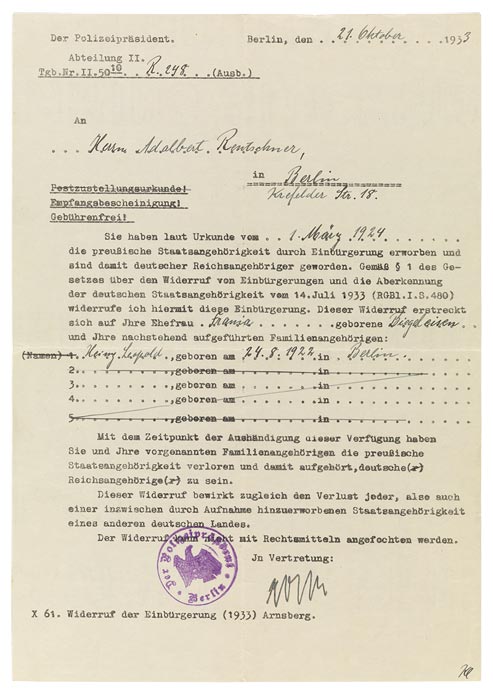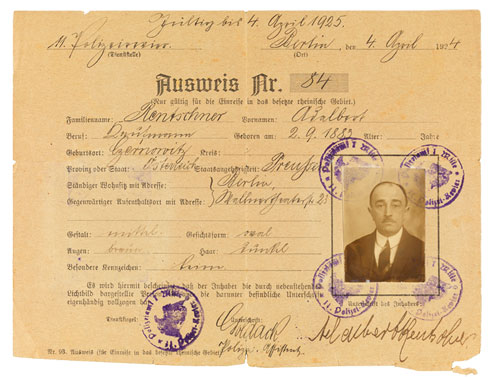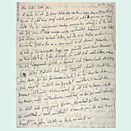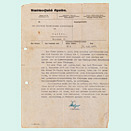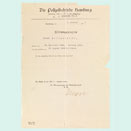Saturday
21 October 1933
Revocation of Adalbert Rentschner‘s naturalization
"… if the naturalization cannot be regarded as desirable," it may "be revoked." With this wording, a law passed by the Reich government on 14 July 1933 legitimized "the revocation of naturalizations and the annulment of German citizenship." The law fulfilled an important promise that had formed part of the Nazi party manifesto as early as 1920.
The new law specifically targeted one group that was particularly hated by the Nazis: Jews who had immigrated to the German Reich from eastern European countries. In the implementing order, the Reich Ministry of the Interior spelled out the racist and antisemitic thrust of the legislation: "The assessment of whether a naturalization should be regarded as undesirable is made according to völkisch-national (and racial) principles." The Ostjuden—"Eastern Jews"—were explicitly named as a group of people for whom the revocation of naturalization should "particularly" be considered.
On the basis of this law, the Berlin chief of police decreed that Adalbert Rentschner—born in Czernowitz, Bukovina, in 1883 and resident in Berlin for almost thirty years—was being deprived of the Prussian citizenship he had acquired on 1 March 1924 and was therefore no longer a German. The order also covered Adalbert‘s wife Frania (1892–1942), originally from Lemberg (Lviv), and his son Heinz Leopold, born in Berlin in 1922. Because the German citizenship law of 1913 was based on jus sanguinis (the "law of blood"), the eleven-year-old‘s nationality depended on that of his parents.
It was not possible for Adalbert Rentschner to appeal against the decree or to take any legal action. From now on, the Rentschner family was considered "stateless" and was subject to the Aliens Law.
Jörg Waßmer
